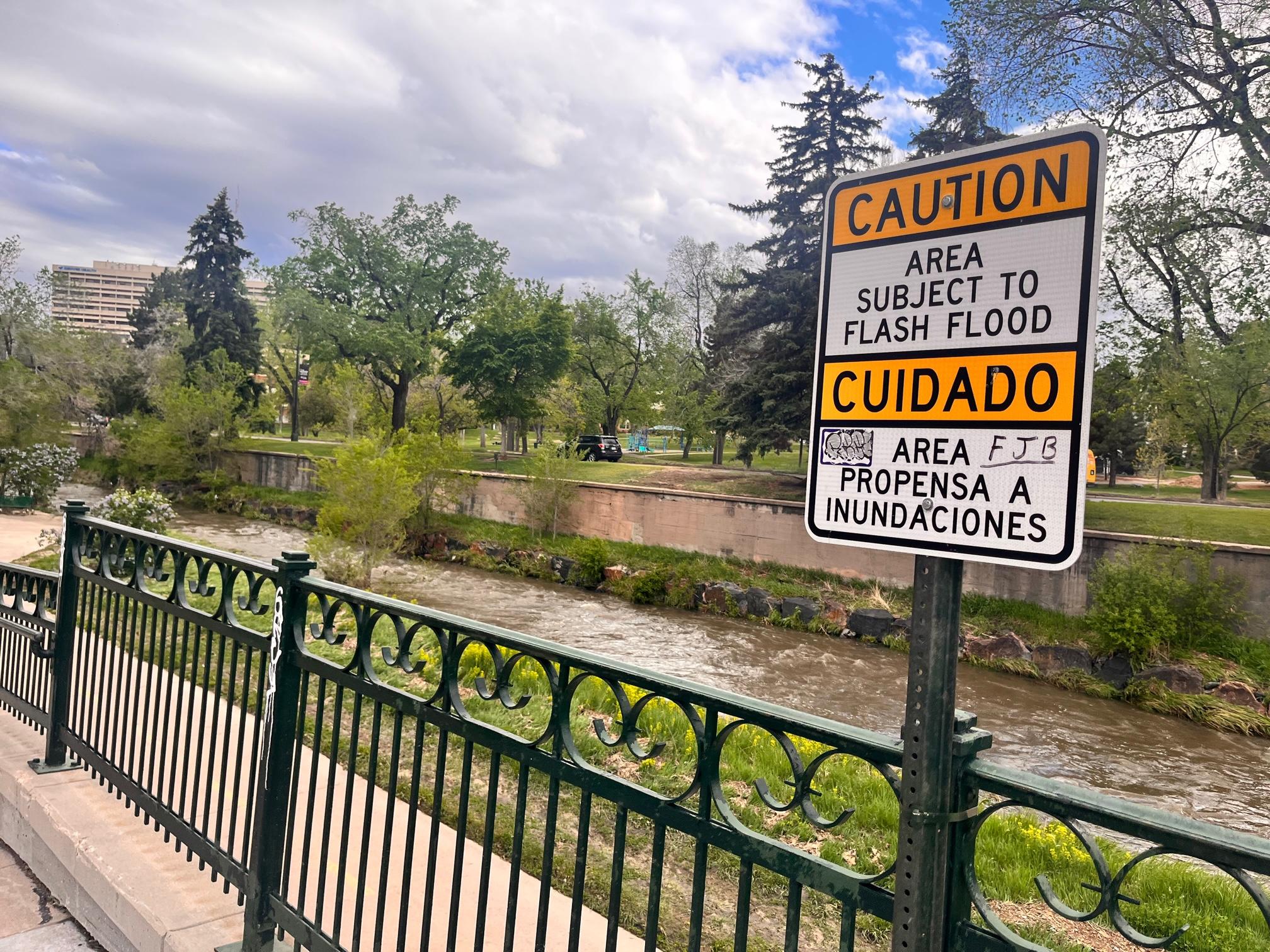
Colorado skies are dark and gloomy, but it isn’t because of wildfire smoke. It’s thanks to a series of late-spring rainstorms.
Thunderstorms and rain have been rumbling over most parts of the state recently. That’s expected to continue over the next week, said Scott Entrekin, a National Weather Service meteorologist.
“There [will] probably be more of your typical afternoon showers and thunderstorms that we're normally more used to,” Entrekin said. “But there will still be enough moisture … that we'll probably see a good round of these [storms] pretty much every day this week.”
Rainfall isn’t expected to reach the levels seen in the early May rainstorm that left several counties under a flood watch and turned tame creeks into overflowing rivers. In Colorado Springs, the Denver Metro and parts of Northern Colorado, the heaviest rainfall isn’t expected to exceed half an inch per hour.
The Cameron Peak burn scar area in Larimer County was under a flood watch on Sunday. That advisory was in effect until Sunday evening and warned that heavy, sudden rain could cause flooding near streams and areas with poor drainage.
The Western Slope can also expect to see afternoon thunderstorms this week, however heavy rain is likely to be isolated in the higher elevation parts. Temperatures are returning to seasonal levels, with highs expected in the mid-80s.
In some of Colorado’s highest peaks, snow is falling on mountains and the unseasonably cool weather is causing hazardous road conditions in some areas.
Since last month, parts of the Front Range have seen up to nine inches of rain, according to Colorado State University’s Colorado Climate Center. That’s helped pull large swaths of the state out of extreme and severe drought conditions, however experts say it won’t lessen the effects of long-term drought.
Climate experts are predicting a wetter year for the greater United States, thanks to the return of El Niño. However, the effects of El Niño, a weather pattern brought on by warmer ocean waters and weaker trade winds, does not always apply to Colorado due to the state's distance to coastal areas.









